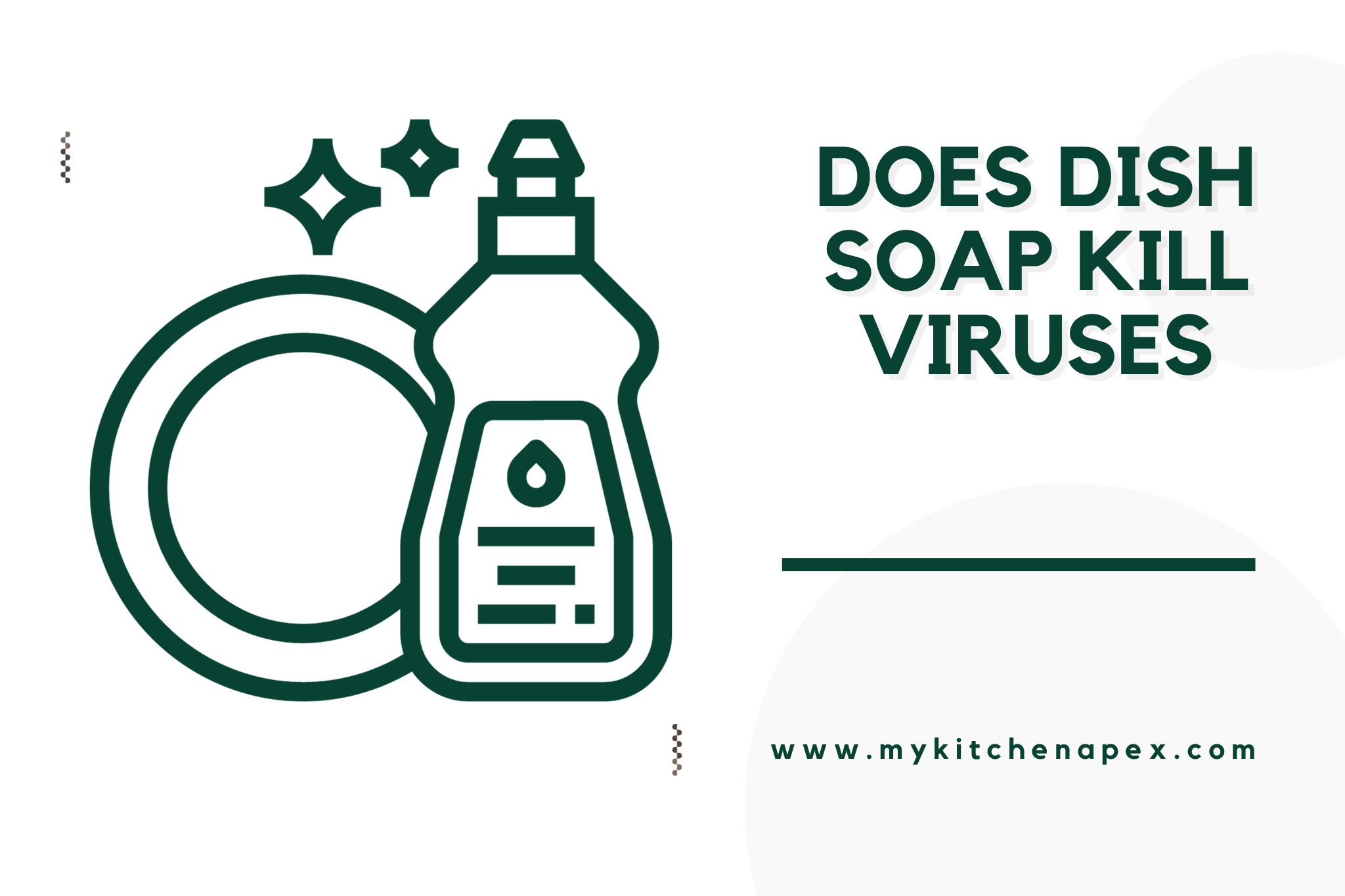Originally Created on: January 21, 2024 @ 7:13 am
Are you wondering if dish soap has the power to eliminate viruses? You’re not alone. In today’s world, where cleanliness and hygiene are more important than ever, it’s crucial to understand which products can effectively kill harmful pathogens. While we often associate dish soap with cleaning dirty dishes, its potential as a virus killer may surprise you.
Dish soap is known for its ability to cut through grease and grime, but could it also be effective against viruses? As we navigate through these uncertain times, it’s essential to arm ourselves with accurate information about the products we use in our homes. So let’s dive into the science behind dish soap and explore whether it possesses the power to eradicate those pesky viruses that threaten our health and well-being.
Table of Content
Highlights:
- Dish soap can effectively kill viruses by breaking down their lipid envelope.
- Choose dish soaps with antiviral properties or ingredients like benzalkonium chloride or hydrogen peroxide for maximum effectiveness.
- Follow proper cleaning protocols, including washing items with hot water and soap for at least 20 seconds, to reduce the risk of viral transmission.
does dish soap kill viruses
Yes, dish soap can effectively kill viruses. The active ingredients in most dish soaps, such as surfactants and detergents, work by breaking down the lipid envelope of the virus. This disrupts its structure and renders it inactive. However, it is important to note that not all dish soaps are created equal when it comes to killing viruses. Look for products that specifically mention their antiviral properties or contain ingredients like benzalkonium chloride or hydrogen peroxide for maximum effectiveness.
Using dish soap to clean surfaces and utensils can help reduce the risk of viral transmission, especially during times of heightened concern such as flu seasons or outbreaks. It is important to follow proper cleaning protocols by thoroughly washing items with hot water and soap for at least 20 seconds before rinsing them off. Remember to also wash your hands frequently with soap and water for at least 20 seconds to maintain good hygiene practices.
In conclusion, while dish soap can be effective in killing viruses, it is crucial to choose the right product and use proper cleaning techniques for optimal results. By incorporating regular handwashing and thorough cleaning practices into your daily routine, you can help protect yourself and others from viral infections.
You May Also Like: does dish soap have ammonia
Is it safe to wash hands with dishwashing liquid?
Yes, it is safe to wash hands with dishwashing liquid. Dishwashing liquids are designed to remove grease and grime from dishes, which means they can effectively clean your hands as well. However, it’s important to choose a mild dishwashing liquid that is gentle on the skin and doesn’t contain harsh chemicals. Look for products that are labeled as “gentle” or “mild” and avoid those with added fragrances or dyes, as these can cause irritation. Remember to rinse your hands thoroughly after washing them with dishwashing liquid to ensure all residue is removed.
Using dishwashing liquid to wash your hands can be a convenient option when you don’t have access to soap and water. It’s especially useful in situations like camping or traveling where traditional hand-washing facilities may not be readily available. However, it’s important to note that while dishwashing liquids are effective at removing dirt and germs from the surface of your skin, they may not be as effective as regular hand soap in killing bacteria and viruses. Therefore, if you have access to soap and water, it’s always best to use them for proper hand hygiene.
Can you disinfect surfaces with regular household cleaners like dish soap?
Yes, regular household cleaners like dish soap can be effective in disinfecting surfaces. While dish soap is primarily designed for removing grease and grime from dishes, it also has the ability to eliminate certain types of bacteria and viruses. However, it’s important to note that not all household cleaners are created equal when it comes to disinfection.
To effectively disinfect surfaces using dish soap, you’ll need to follow a few key steps. First, make sure to thoroughly clean the surface with warm water and dish soap to remove any dirt or debris. Next, mix a solution of one part dish soap with nine parts water in a spray bottle or bucket. Apply this solution generously to the surface and let it sit for at least 10 minutes before wiping away with a clean cloth or sponge.
While dish soap can help kill some germs on surfaces, it may not be as effective as specialized disinfectants or products containing bleach or alcohol. If you’re looking for a more powerful disinfectant, consider using EPA-approved household cleaners that specifically state they are effective against bacteria and viruses. Always read and follow the instructions on the product label for best results.
In conclusion, while regular household cleaners like dish soap can help disinfect surfaces to some extent, they may not be as potent as specialized disinfectants. It’s essential to properly clean the surface before applying any cleaning solution and allow sufficient contact time for maximum effectiveness. For optimal germ-killing power, consider using EPA-approved products that are explicitly designed for killing bacteria and viruses on surfaces
Also Read: can you put dish soap in toilet tank
Effectiveness of dish soap against viruses
Dish soap has been proven to be effective against viruses, including the coronavirus. The active ingredients in dish soap, such as surfactants and detergents, work by breaking down the protective lipid layer of the virus, rendering it inactive and unable to infect cells. This is why regular handwashing with soap and water is recommended as one of the most effective ways to prevent the spread of viruses.
When using dish soap for cleaning surfaces, it’s important to follow proper guidelines. Dilute a small amount of dish soap in water and use a cloth or sponge to clean the surface thoroughly. Rinse well with water afterward to remove any residue. It’s worth noting that while dish soap can help eliminate viruses from surfaces, it does not provide long-lasting protection like disinfectants or sanitizers.
In conclusion, dish soap can be an effective tool in combating viruses when used correctly. Regular handwashing with dish soap and water is crucial for personal hygiene, while using diluted dish soap for cleaning surfaces can help reduce viral contamination. Remember to always follow proper guidelines and consult health authorities for specific recommendations on virus prevention measures.
Also Read: does dish soap freeze
Final Thoughts
Dish soap has the power to effectively kill viruses by breaking down their protective lipid layer. However, not all dish soaps are equally effective, so look for products with antiviral properties or specific ingredients like benzalkonium chloride or hydrogen peroxide. Washing surfaces and utensils with hot water and soap for at least 20 seconds can reduce viral transmission risk. It is safe to wash hands with mild dishwashing liquid, but regular hand soap is more effective in killing bacteria and viruses. While dish soap can disinfect surfaces, specialized disinfectants may be more potent. Always follow proper cleaning protocols and consult health authorities for specific recommendations on virus prevention measures.

